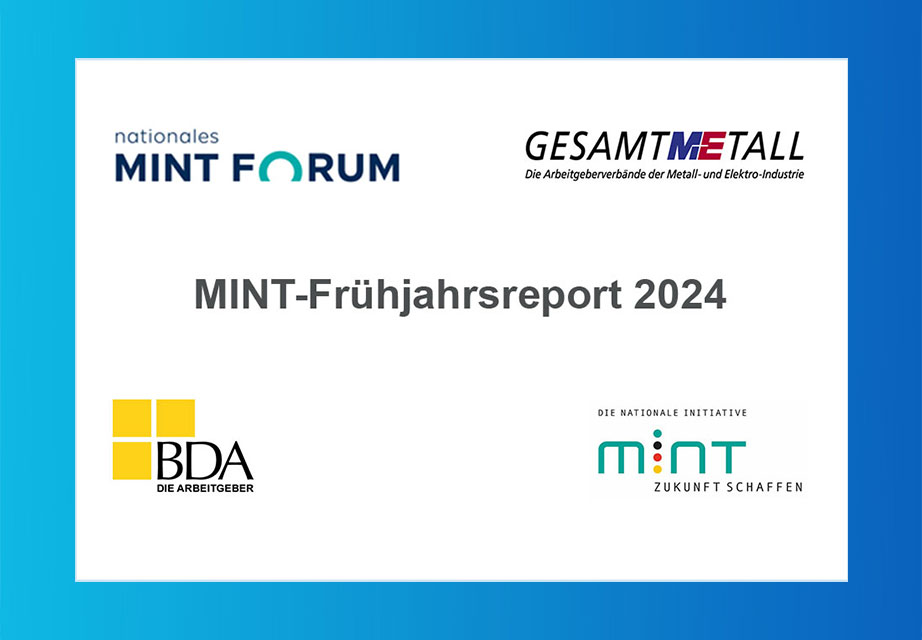- TOPICS
-
-
- Employment and Labour Market
- Labour law and collective bargaining policy
- General applicability
- Industrial action
- Labour & collective bargaining law
- Working time
- Time limit
- Works Constitution
- Bureaucracy reduction
- Data protection
- Protection against discrimination
- Parental leave
- Posting
- Insolvency
- Protection against dismissal
- Minimum wage
- Co-determination
- Mobile work
- Maternity protection
- Pandemic
- Care time
- Self-employment
- Tariff autonomy
- Collective Bargaining Agreement
- Collective bargaining unit
- Tariff policy
- Collective bargaining
- Collective agreement
- Part-time work
- Restructuring
- Holiday law
- Contracts for work
- Whistleblowing
- Temporary work
- Education and vocational training
- Training market
- Professional orientation
- Education policy
- Education 4.0
- Dual education
- dual study
- Permeability
- Early childhood education
- Higher Education Funding
- Lifelong learning
- Teacher Education
- Reorganization of education and training
- STEM Professionals
- Economic education
- Accreditation/Quality assurance
- SCHOOLBUSINESS Germany
- Digitalization and innovation
- Europe and International Affairs
- Social policy and social security
- Old-age poverty
- Work made in Germany
- Occupational safety
- Contribution and registration law
- Company pension scheme
- Shortage of company doctors
- Health insurance
- Long-term care insurance
- Mental health
- Pension insurance
- Riester pension
- Social self-government
- Social insurance
- Accident insurance
- The future of social security
- Taxes & Finances
- Economy & Society
-
-
-
- Newsroom
- The BDA
- Members

Germany lacks over 240,000 skilled workers in STEM professions

The skills gap in STEM professions remains at a high level despite the economic slowdown. The companies surveyed are very concerned about the poor PISA results and the drop in the number of first-semester students in STEM disciplines. At the same time, the demand for skilled workers in STEM professions continues to rise due to digitalization and climate protection. From the companies' perspective, targeted government investment in the education system is the most important factor in successfully mastering the transformation.
Berlin, May 7, 2024: The labor shortage in the STEM professions (science, technology, engineering and mathematics) remains at a high level despite the sharp economic slowdown. In March 2024, it will reach 244,400. The survey of companies has shown that the need for skilled workers in STEM professions will increase significantly in the coming years for the transformation in the areas of digitalization and climate protection. At the same time, demographic change is leading to increasing replacement requirements (64,800 STEM graduates are currently leaving the workforce every year), while there is a shortage of young talent in training and studies. In the medium term, there is a risk of a further decline in the number of young people in Germany, as the performance of pupils in the PISA surveys in mathematics is falling sharply. From the companies' perspective, government investment in the education system is the most important factor (score 98 on a scale from 0 (completely unimportant) to 100 (absolutely necessary) in order to successfully master the transformation.
Prof. Dr. Axel Plünnecke, Head of the Education, Innovation and Migration Cluster at the Cologne Institute for Economic Research: "The STEM skills gap would be significantly higher today if the first successes in securing STEM skilled workers among women, older people, immigrants and in STEM education had not been achieved in the last ten years. The employment dynamic among immigrants is particularly high - without successes in immigration, there would be an additional shortage of around 442,000 STEM specialists today. However, the number of young STEM talents is expected to decline in the coming years. The number of first-semester students in STEM degree courses has fallen by 10 percent between 2016 and today, and the proportion of high-achieving PISA students in mathematics has halved in the last 10 years."
Indra Hadeler, Managing Director of Education and International Relations at the employers' association Gesamtmetall: "The M+E industry invests over 109 billion euros a year in innovation, particularly in the areas of climate protection and digitalization. However, half of the companies in the M+E industry are already being hindered by a lack of skilled workers to better position their own company in the area of digitalization. Although the number of apprenticeships in industrial IT professions has recently risen again, the number of first-year students in engineering and computer science fell by 10.5% last year. The results of the PISA study also indicate that fewer and fewer young people have sufficient skills in mathematics and science and are therefore struggling in STEM professions. This clouds the prospects for the digitalization of the economy and makes it clear that priority must be given to strengthening the school system."
Christina Ramb, Member of the Executive Board of the BDA: "A lack of STEM workers and specialists is a key obstacle for companies. The majority of companies expect an increasing demand for IT experts, engineers and professionally qualified STEM specialists, especially for the development of climate-friendly products and technologies. Without the right know-how, we will not be able to meet the challenges ahead. In addition, we will need more academically and professionally qualified STEM specialists in the future simply to compensate for age-related departures. Targeted investment by the state, particularly in early education and school education, is therefore an important factor in managing and shaping the transformation. We must also be more successful in securing existing potential for the German labor market. This applies in particular to foreign STEM students, who we absolutely must keep in the country."
Prof. Dr. Christoph Meinel, Chairman of the Board of MINT Zukunft schaffen: "We need to strengthen STEM skills in schools. The analyses of the PISA results carried out in the MINT Autumn Report show that a lower level of educational proximity at home and (too) many hours of digital media consumption per day are associated with lower PISA results. Better results were achieved when schools were able to support children well during school closures, for example through digital lessons. A particularly positive effect is achieved when schools are able to create a positive attitude towards math lessons and a good learning atmosphere. It is therefore important to strengthen digital education and STEM, especially mathematics, in schools."
Edith Wolf and Prof. Dr. Carsten Busch, board members of the National STEM Forum: "We urgently need more well-trained STEM specialists in Germany in order to successfully shape important transformation processes. To achieve this, it is crucial that we work towards greater equality of opportunity in the education system and get young people interested in STEM at an early age in order to counteract the long-standing decline in school performance in the STEM disciplines. The Startchancen program is an important first step here. We welcome the idea of involving extracurricular STEM learning locations, as schools alone will not be able to solve the problems. STEM learning locations are in a position to reach children and young people in their real lives with innovative project work, especially during the full day. Securing the STEM teacher base and more career and study orientation are further important political measures that should be implemented through a joint approach at federal and state level."
View the study: click here.
About the MINT Report
The MINT Report is produced twice a year by the Cologne Institute for Economic Research. The study is commissioned by the following members of the National MINT Forum: Confederation of German Employers' Associations, Gesamtmetall Employers' Association and MINT Zukunft schaffen.






